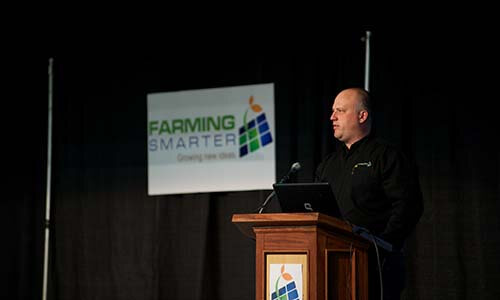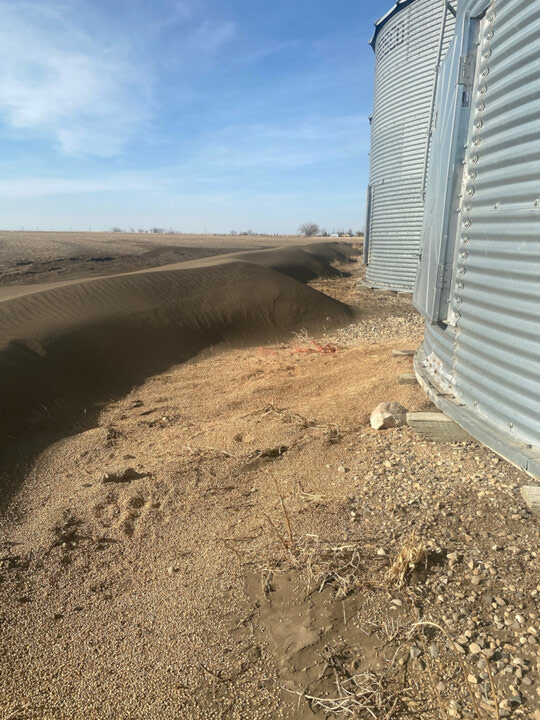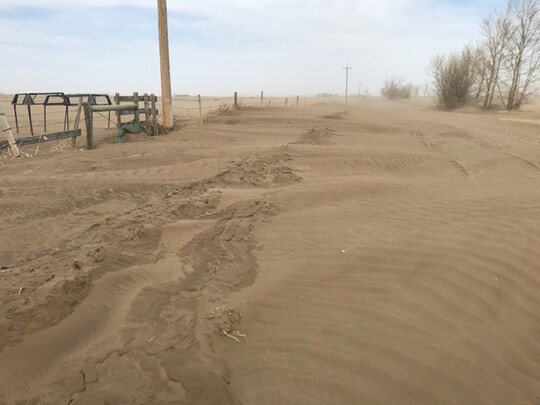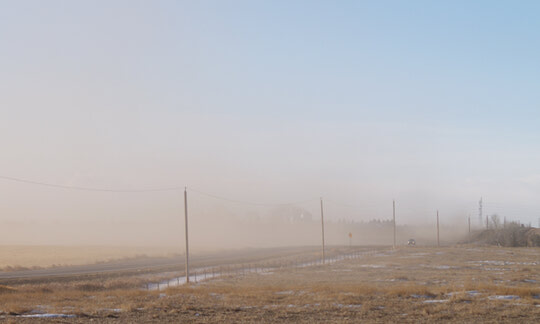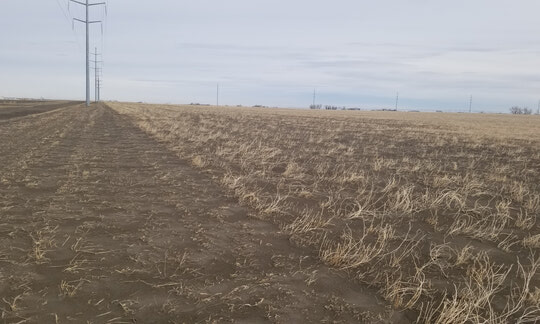News and updates
Keep up to date with the latest articles and new releases from the Farming Smarter.
Our Cover Crops project is finishing its fourth year, the final of our scheduled timeline.
As winter looms ever closer, it's a good time to think about our soil health come spring. The biggest advantage of cover crops is the benefits they bring to soil nutrients & the general health of the soil.
As public pressure increased against the use of neonicotinoids in agriculture, we wanted to plan for the worst-case scenario. In 2020, we set out to evaluate potential losses and test the best available alternative management strategies to mitigate loss.
Nathan along with his brothers, Matthew, Greg, and father Richard, own and operate Stamp Farms and Stamp Seeds. They grow, clean and retail certified seed to customers across Canada. Nathan manages the farming operation and crop production side of the business.
Trevor Deering's direction when he started post-secondary education aimed him at a totally different career, but after his first semester, he found it was not what he wanted. So, he took time to investigate and study alternatives and landed on Agriculture Studies.
Farming Smarter has been researching the benefits of deep banding nutrients, as well as precision planting in canola and pulse crops. For the past two years, Dhillon has been one of the researchers leading this endeavour.
When we started this project, yield trends were improving with the adoption of better genetics and agronomic practices. The downside was that soils were turning up deficient of nutrients in critical periods. Our hypothesis was that immobile nutrients were accumulating near the surface of the soil.
Besides nitrogen, phosphorus is one of the most critical essential elements for adequate crop growth and productivity in agricultural ecosystems.
In this day and age, misinformation can be easier to find than information! It's important to build up a database of trusted sources for credible information. In our day-to-day lives, a lot of us encounter circumstances that require us to think critically.
The Hail Damage Simulation project results are published! Read it in the Canadian Journal of Plant Science!
No till, cover crops and wind breaks all play a role in mitigating wind soil erosion on The Prairies, but are they equally effective? Allowing soil to blow has negative effects, so it's important for producers to determine the best practices to ensure they are protecting this resource.
Rolling barley impact your yield and help your equipment! Our project is investigating the best time to roll your barley plots. Rolling barley pushes rocks into the soil, avoiding damage when it comes time to silage the field.
Agriculture and Agri-Food Canada has released the Guide to Pest Wireworms in Canadian Prairie Field Crop Production. With this field guide, you'll be able to easier identify wireworm damage in your fields, develop strategy plans to mitigate the damage, and better protect your field!
Soon, irrigation could see hands-off technology entering the market in southern Alberta.
Together, with UBC's LiteFarm & Ensemble Scientific, we are working towards building a community-driven, open-source irrigation system to benefit farmers around the globe.
One of the major long-term goals of the sustainable farming systems is to achieve high crop yields with lower application rates of inorganic nitrogenous fertilizers.
Spend a little time around Farming Smarter and you may experience an infamous Lewis Baarda quip coming at you from left field.
Getting along with neighbours is important no matter where one lives. When you live in a rural, agricultural area where the land is both home and livelihood, good neighbour relations can be extra critical.
As our Perfectly Placed trials wrap up their third year, we've seen dramatic differences this year. We're focused on adapting the precision planters for crop production in southern Alberta with this trial.
In southern Alberta, Farming Smarter Director John Kolk probably needs no introduction. Chances are you've served with him on a board, council, or advisory committee. If not, you've watched him in action.
We're looking for subtle changes in moisture levels as the crops grow. These slight changes could lead to practices developing and changing to better optimize crop yield.
There's more to blowing soil than what (painfully) meets the eye. Those airborne particles can hold vital nutrients and even crop disease.
While our Hemp Agronomy project is focused on the fertility of the plant, our Perfectly Placed trial focuses on seeding. Specifically, we're comparing vacuum/precision planters to air drills.
Right now, we have three separate trials for alfalfa going on at Farming Smarter. We're researching how to best combat alfalfa weevil, the best time & product to desiccate alfalfa, and the effect of plant growth regulators on the crop.
When the wind picks up and the sky turns grey with blow-dirt, everyone loses.
For the farmer whose field seems suddenly half in the air, the economic impact of a major wind event can be nothing short of devastating.

